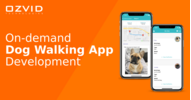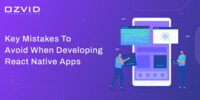- May 12, 2023
- Web Development
- 11850
Share this post on:
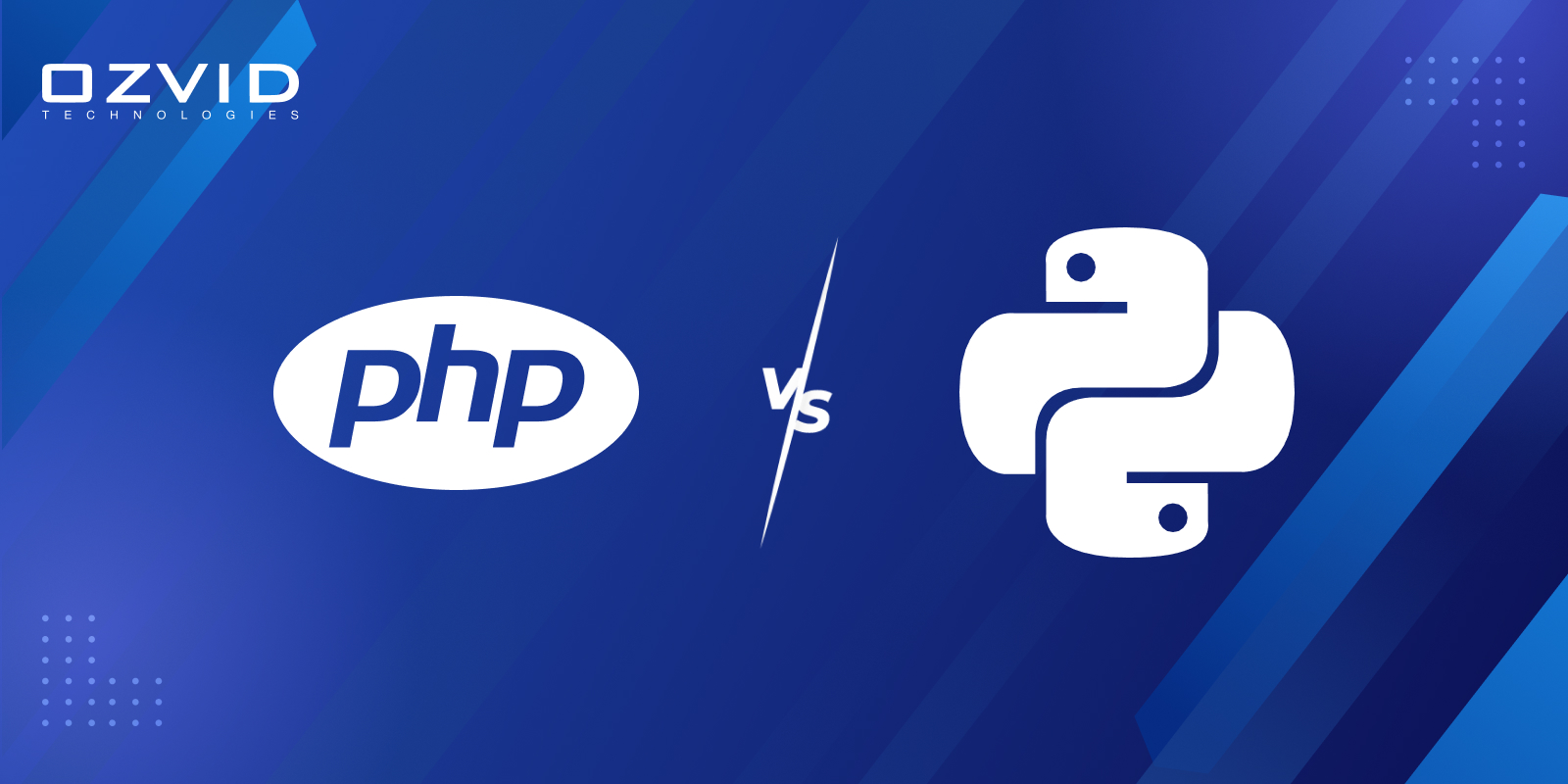
We live in a technological era where PHP and Python are the two most popular server-side languages among developers. Businesses are opting for these languages for developing web solutions. Choosing one of these can be difficult. There are numerous websites programmed in PHP and multiple others in Python.
As per stats, PHP is utilized by 77.5% of websites, while Python is gaining momentum slowly and steadily in web development. So, which programming language is perfect for your app? PHP or Python? In this article, we will focus on the elemental comparison of the two languages based on various factors such as speed, security, performance, versatility, scalability, easy installation, debugging, web framework options, environment management, and developer community and support.
PHP vs Python:
PHP:
PHP stands for Hypertext Preprocessor and is a server-side scripting language. It is used to develop a dynamic website and integrates all web servers. It is widely used and easy to learn and understand. Even people from a non-technical background find it easy to understand.
Features of PHP:
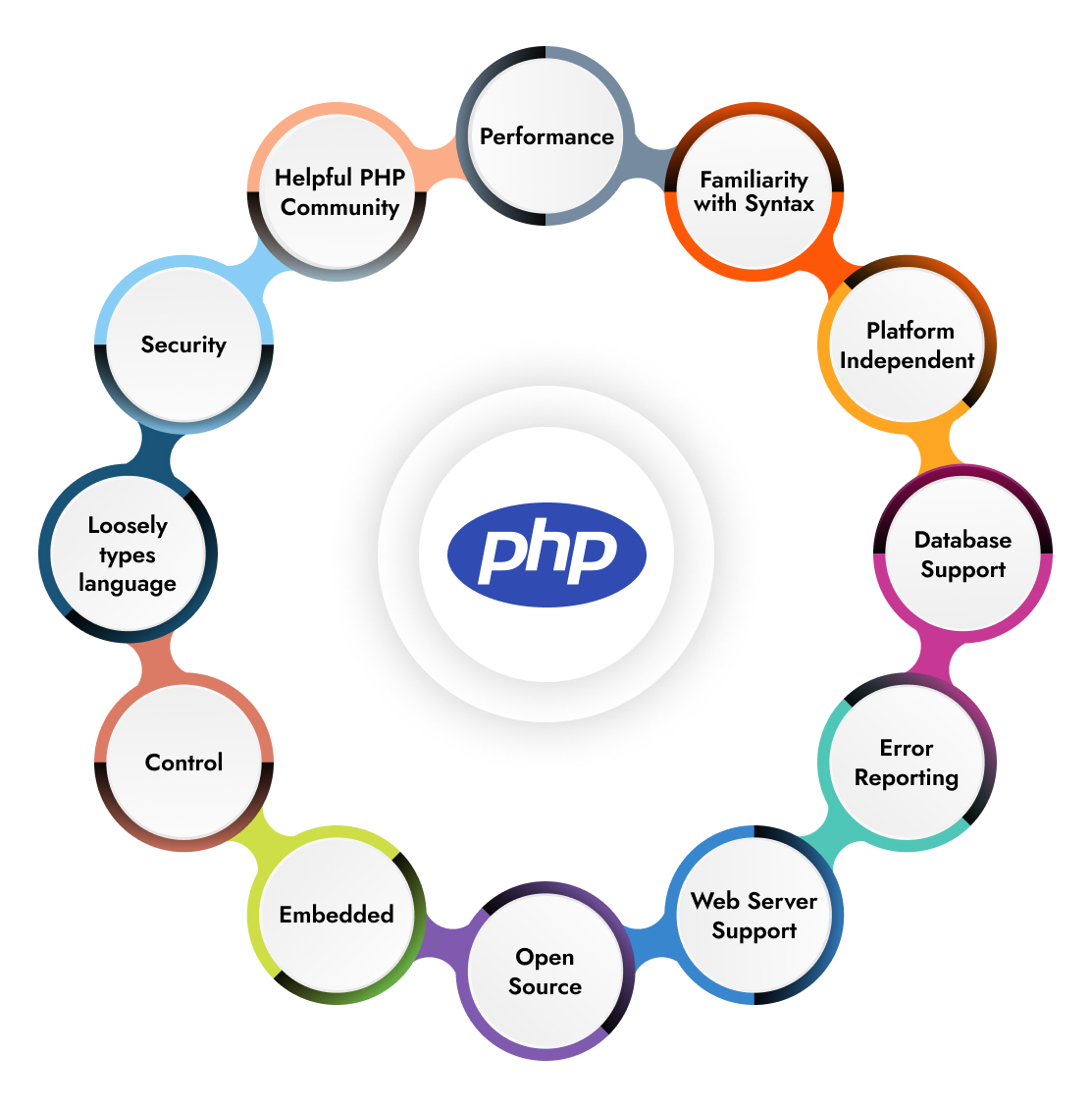
- PHP is open source, and anyone can download it easily. It makes it easy for the developer to inspect code, post errors, and contribute to the community.
- The syntax of PHP is similar to that of the C language. That makes it simpler and easier to use than other languages.
- PHP is highly compatible with multiple programming languages, such as HTML and JavaScript. It supports various database languages such as MySQL, PostgreSQL, and more.
- Since PHP is flexible, it is faster than many other scripting languages, such as ASP.NET, JSP, and PERL.
Where do you use PHP?
PHP helps in the development of dynamic and interactive websites and apps. According to statistics, 77.5% of websites are written in PHP. A few examples of websites developed on PHP are WordPress.com, Wikipedia.org, Facebook.com, Zoom.us, Canva.com, and Microsoft.com.
Python:
Python is a high-level object-oriented programming language with built-in data structures that helps in rapid development. Moreover, it is the fastest programming language and requires fewer lines of code. It is one of the most simple and easily readable languages.
Features of Python:
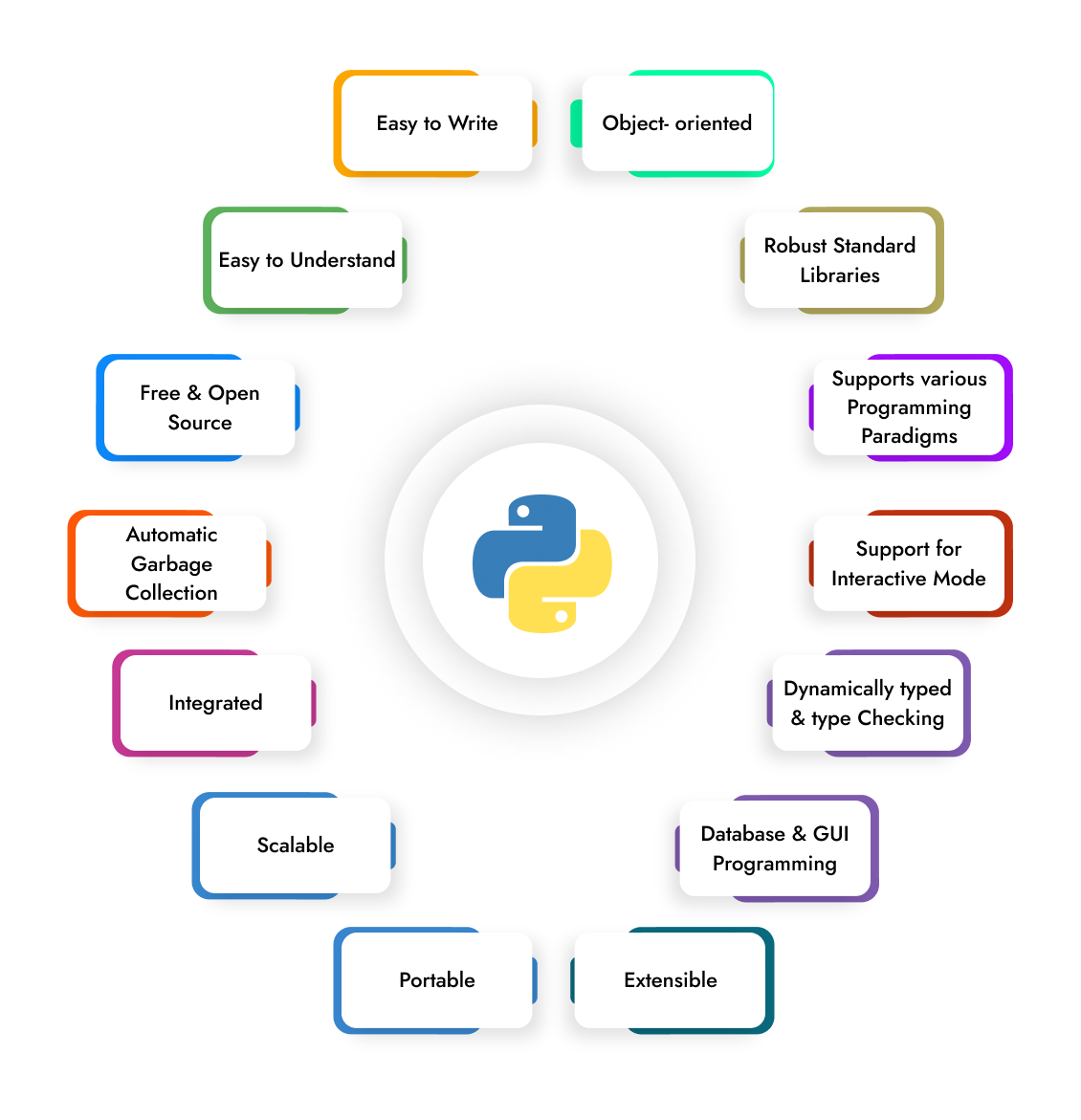
- Being open-source, people can download, use it freely, and it is helpful for developers to find community support.
- Python is easier to understand and learn than any other programming language, such as Java, C, C++, and more.
- Since it is object-oriented programming, Python allows you access to features such as objective encapsulation, construct and destruct, and classes.
- Python is an extensible language, and developers can write Python code in C++.
- The code written in Python can be executed line by line, which is much easier and less time-consuming.
- Python codes are flexible and can be written in Python for one operating system and run on another.
Where do you use Python?
Python helps in web development, data science and analytics, artificial intelligence, machine learning, scripting, game development, and desktop application development.
Python vs PHP: A Comparison
A detailed comparison helps you understand the difference between the two languages and choose the right one for your development purposes.
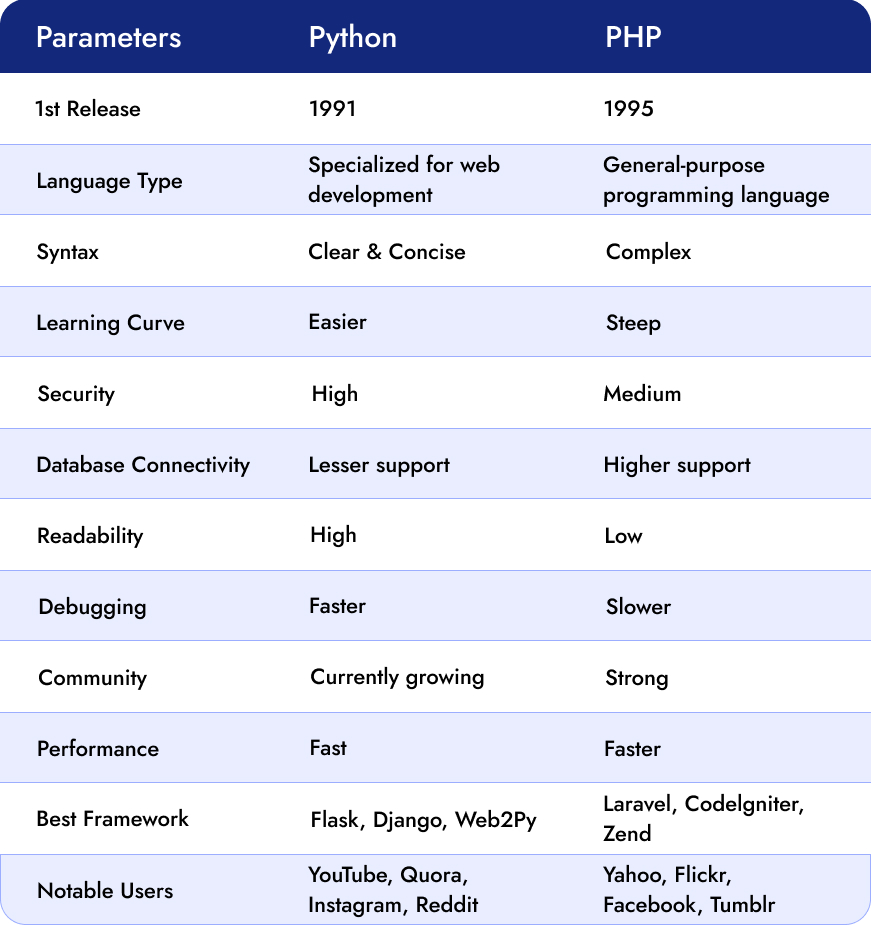
Speed to market: We live in an era where speed of development matters the most. Businesses worldwide are looking for different ways to achieve fast and efficient development, and developing an MVP to speed up digital transformation is one of the most efficient ways.
This makes it necessary to choose the programming language that suits the web app.
Python consists of powerful third-party libraries, modules, and packages that help in the faster development of apps. For example, Django is one of the most robust frameworks written in Python. It uses a model-view-controller (MVC) pattern that allows coders to develop applications quickly and accurately.
Talking about PHP also comes with great tools, libraries, and frameworks. One of the most famous frameworks in PHP is Laravel. It has many valuable features and follows MVC patterns for faster development. The features included are authentication, routing, templating, and more.
So, in terms of speed, both perform well.
Security: Web development is a rapidly growing field, and security is one of the most essential concerns. New technologies, libraries, and frameworks are constantly emerging. As a result, it has become challenging for developers to keep up with security threats and take the required steps to mitigate or control them. Most times, developers focus more on functionality than security, and hackers tend to take advantage of that, leading to serious security vulnerabilities. The cost and time to fix these security vulnerabilities evolve with the development cycle.
Python has a good history with security and is a recommended choice for businesses. For example, the Django framework has in-built security features that help protect the application from various security threats. Python is highly trusted among government agencies and is a secret hacking tool. Not only that, US organizations use Python as a backend language to store their sensitive data.
However, PHP does not have a strong security history but has a strong community that has successfully addressed the security issues but failed to do so in Python.
So, in terms of security, Python performs well.
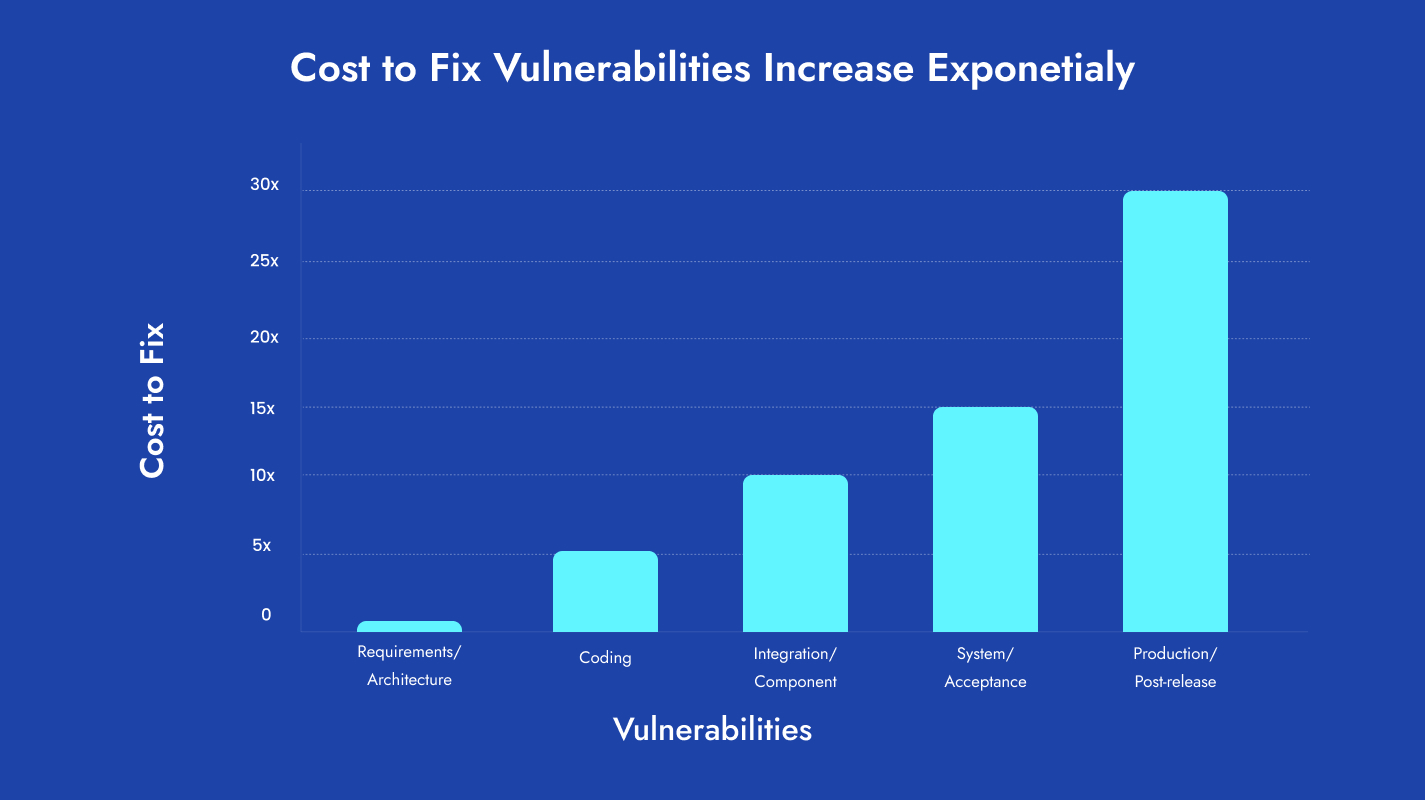
Performance: Speed plays a crucial role in determining the performance of any website or application. According to a Google study, 53% of traffic leaves pages that take longer than 3 seconds to load. Python uses a just-in-time (JIT) compiler, making it faster and more efficient than PHP. The main advantage of JIT is that you do not have to compile the files once they are compiled.
PHP’s earlier versions (5.x) were slower than Python's. With the release of PHP 7.x, it has become faster than the previous versions.
So, in terms of performance, PHP performs better than Python, but with a marginal difference.
Versatility: Web apps are more than simple portals or websites. With the emerging demand for AI and machine learning, all businesses are moving towards AI algorithms. These algorithms help businesses understand their customer's requirements and tailor solutions. Many renowned businesses are using AI to deliver better results to their customers. For example, Uber has developed a platform using Python called Michelangelo PyML, which helps Uber make predictions and efficiently solve day-to-day tasks.
Python has multiple libraries that are equally powerful as the libraries offered by PHP. The libraries of Python are more trusted when it comes to building apps in AI.
So, in terms of versatility, Python is more versatile than PHP.
Scalability: A business's growth depends on its product's success. So, companies must develop products or apps that are easy to scale and fulfill customers’ requirements. Thus, opting for app development technology helps businesses scale up. The apps developed in the Python framework offer AI and ML capabilities, leading to increased scalability.
The Django framework of Python helps businesses maintain simplicity and practicality and has ready-to-go components that help in developing scalable apps. It consists of a series of various components that can be unplugged or replaced per the business's requirements.
Instagram, one of the most famous social media platforms, is developed using the Django framework. Whereas, PHP is less in demand. Although PHP is constantly improving, it lags behind Python.
So, in terms of scalability, Python is doing a great job.
Ease of installation: PHP offers easy installation whether it is installed on macOS, Windows, or any other operating system. It runs well on each operating system. Whereas, Python is easy to install on Mac OS X but gets complicated when needed to install on Windows.
Moreover, Python comes pre-installed on Mac OS X but is outdated and cannot be used for development purposes, and developers require a new version. That is, again, extra work to do.
So, in terms of ease of installation, PHP wins.
Web framework options: PHP and Python have great frameworks for web development. The common PHP frameworks used are Laravel, Codelgniter, Symfony, and Zend. Among these, Laravel is most famous because of its high performance, scalability, and minimal configuration requirements.
Python has Django, Flask, CubicWeb, Bottle, Pylons, and many more frameworks. Among all these, Django and Flask are used because of their rich features. So, in terms of a web framework, both perform well.
Environment Management: The environment plays a vital role in web application development. A controlled and stable environment helps in the project's better and more accurate deployment. It enhances collaboration, speeds up the development process, reduces downtime, enhances security, and delivers high-quality web applications.
PHP uses the virtPHP environment manager, and can easily be replaced with better options such as Docker and Kubernetes. Developers can use these containers to run small microservices. A container offers advantages such as reduced overhead, consistent operation, increased portability, and improved efficiency.
While Python uses virtualenv as an environment manager. It is highly efficient and valuable, and it is easy to install and manage multiple Python versions using virtualenv. Also, it allows you to install, manage, and switch multiple versions side-by-side and is popular among developers.
So, in terms of environment management, Python has better environment management.
Debugging: PHP uses debuggers such as XDebug, which is tricky.
Whereas, Python uses the Python Debugger (PDB) and is easy to use and understand. You can get rid of bugs quickly.
In terms of debugging, Python, and PHP are easy to use.
Community Support: PHP has been on the market for a long time now and has online documentation, tutorials, and a forum. Also, it is capable of managing open projects, libraries, and frameworks.
However, its community is growing fast, and it has become one of the most famous languages due to its simplicity, scalability, and efficiency. The Python community is active and is significantly contributing to the open-source community.
So, in terms of community support, Python and PHP have large developer communities. Developers can easily get help for their issues and find solutions to their problems.
To Conclude:
Any organization’s success depends on its robust, high-performing, and user-centric approach. PHP and Python are highly efficient programming languages. Even though both PHP and Python do well, Python seems to be more advantageous than PHP. Moreover, whatever language you want to choose depends on your requirements for web apps.
So, if you are looking for the most reliable web app development services and do not know what language will suit you the most, feel free to contact us. We at OZVID have experts in PHP and Python who can guide you by understanding your requirements and which language will be most suitable for the projects. Our experts have helped numerous businesses enhance their expertise and reliable development skills.


